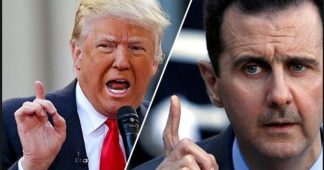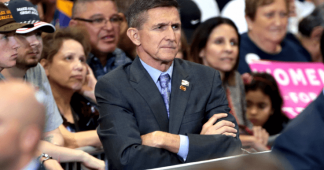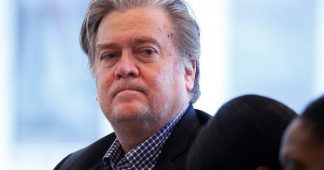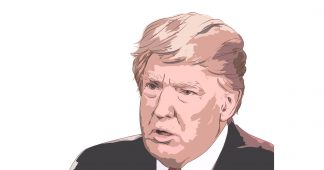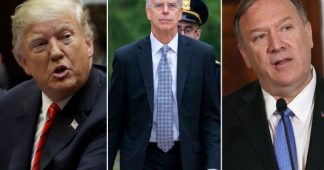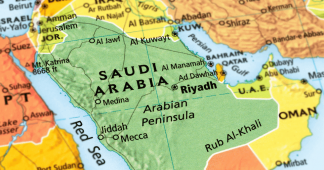By Rachel Marsden
21 Jan, 2021
One of Donald Trump’s major selling points from the outset was his insistence on tackling the special interests responsible for corrupting American democracy. Now he’s left the White House, it’s clear he failed to deliver.
A few days after Donald Trump took office in January 2017, one of his first acts as president was to impose an ethics pledge on his own aides serving in the Executive Office of the President. He bragged about it being a five-year lobbying ban – three years more than his predecessors Democratic Party presidents Barack Obama and Bill Clinton had required of their aides.
Ultimately, in the minutes before Trump left the White House, he reduced it to a zero-day ban. There’s nothing now prohibiting his former aides from jumping straight from their White House gig into a job somewhere inside the massive Washington influence-and-corruption machine that would permit them to rake in dough by lobbying US government decision-makers on behalf of foreign or domestic clients.
Denouncing Trump’s grotesque hypocrisy of actively validating exactly the behavior he has spent his entire political career verbally denouncing – a position that was supposed to set him apart from his political opponents – is a no-brainer. But it should hardly come as a shock to anyone at this point that Trump has no problem using the power of the presidency for personal gain. In fact, self-dealing was one of the main themes of his presidency.
The entire basis of Trump’s first impeachment trial was that he attempted to leverage his position to obtain personal political favors. He had his long-time friend former New York City mayor Rudy Giuliani serve as a middleman in an attempt to convince Ukrainian officials to dig up dirt on his opponent in the presidential race, Joe Biden, and his businessman son, Hunter, under implicit threat of withholding congressionally approved defense assistance.
And right before the second time that Trump was impeached by Congress, controversy swirled over an effort by Trump, caught on tape, that appeared to show him pressuring Georgia’s Republican Secretary of State, Brad Raffensperger, to change the results of the presidential election in the state by telling him that he wanted to “find 11,780 votes.”
That kind of behavior isn’t draining the swamp – it’s effectively attempting to recruit more swamp creatures to participate in swampy activities for Trump’s personal benefit. The question is, where did Trump draw the line?
Special Counsel Robert Mueller’s investigation into foreign interference in the 2016 presidential race spun off counterintelligence investigations into Trump’s inner circle that also involved individuals who have been associated with influence-peddling, the results of which are still unknown. But what we do know is that Trump has issued presidential pardons to some of his own cronies tied to shady lobbying
Trump’s former national security advisor, General Michael Flynn, a pardon beneficiary, secretly lobbied for Turkey and advocated in favor of US nuclear technology transfer to Saudi Arabia while serving as a Trump campaign and presidential transition advisor, according to a congressional report.
Former Trump campaign manager and White House official Steve Bannon – also pardoned, even before any trial – was arrested on a Chinese tycoon’s yacht off the coast of New York, before being charged for an alleged personal enrichment scheme involving soliciting donations from Trump supporters under the pretext of building the wall on the US border that the now ex-president had promised them Mexico would finance.
Trump also just pardoned Elliott Broidy, the fundraiser and inaugural committee member used by Saudi Arabia and the United Arab Emirates to lobby the president, according to the New York Times. Broidy was charged with – and pleaded guilty to – illegal foreign lobbying on behalf of Chinese and Malaysian interests.
Trump himself adopted some strange policy positions – notably involving the Middle East and Latin American countries such as Venezuela and Cuba – that are difficult to explain, particularly for someone who claimed to have little interest in foreign interference or in perpetuating endless foreign wars.
How much of a role did cronies serving as secret emissaries play in influencing Trump’s positions on matters such as Venezuelan sanctions, Cuba’s inclusion on the list of terror-sponsoring countries, or his insistence on giving the Saudis a pass on murdering Washington Post columnist and US resident Jamal Khashoggi?
Admonishing Trump for officially freeing his White House collaborators from any ethical concerns related to future lobbying should be far less of a priority than investigating and determining exactly what undisclosed, shady, self-serving deals he and his cutouts were making on behalf of the American people while he was still in office
* Rachel Marsden, columnist, political strategist and host of an independently produced French-language program that airs on Sputnik France. Her website can be found at rachelmarsden.com
Published at www.rt.com
